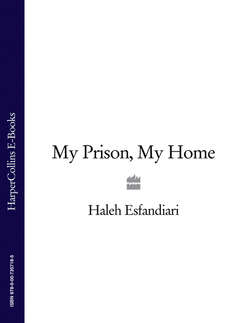Читать книгу My Prison, My Home - Haleh Esfandiari - Страница 14
TEHRAN
ОглавлениеBy the time we returned from Europe, Father had decided to leave the academic world of Karaj and to join the Ministry of Agriculture. I was almost seven years old. Between the time I was seven and eleven years of age, we moved three times, each time to a slightly larger apartment, but for me life was becoming increasingly restricted. I had no garden in which to play and run around, except when I went to Grandmother’s house or visited friends in Karaj. I was enrolled in Jeanne d’Arc, a Catholic school run by nuns. We followed a double curriculum—French in the morning and Persian in the afternoon. In the morning, I learned about the Alps and the Pyrenees, the river Seine and the river Loire. In the afternoon, I learned about the Zagros and Alborz mountains, the Zayandeh Rud River in Isfahan and the Karkheh River in Khuzistan.
My last year at Jeanne d’Arc coincided with the struggle led by Prime Minister Mohammad Mossadegh to nationalize Iran’s oil industry, then controlled by a British enterprise, the Anglo-Iranian Oil Company (AIOC). The nationalization campaign pitted Iran against both the powerful company and the even more powerful British government, which was the majority shareholder in AIOC. The entire country was caught up in the David-and-Goliath struggle. Political parties—Mossadegh’s own National Front; the Communist Tudeh Party; the ultranationalist Sumka Party, whose members, fascist-style, sported black shirts; the Toilers Party, headed by a politician from my family’s ancestral home, Kerman—vied for popularity and power, while their adherents in secondary schools and Tehran University clashed with one another on the streets. New, highly partisan newspapers appeared and were shut down. Mossadegh, hugely popular, made fiery speeches before massive crowds on the great square outside the houses of parliament.
Even as an eleven-year-old I was caught up in these currents, as were the rest of the students at the normally staid Jeanne d’Arc. We had all become politicized and wanted the British out, and the oil industry in Iranian hands. Mossadegh was our hero, and we, like other students, took up the shout, “Ya marg, ya Mossadegh”—“Death or Mossadegh.” Politicians considered insufficiently ardent on the oil nationalization issue, including Mossadegh’s predecessor as prime minister, Ali Razmara, were assassinated. Razmara had signed an oil agreement with the despised British that ardent nationalists considered a sellout of Iranian interests; parliament rejected the agreement. His murder brought the mindless violence close to home. Razmara’s daughter was a student at Jeanne d’Arc, and on the day her father was found dead, the whole school poured out into the schoolyard in sympathy with our classmate. Even the strict nuns could not keep us in the classroom.
The AIOC was finally nationalized by an act of parliament in March 1951, ending in one stroke decades of British control of Iran’s most important industry. The country was jubilant. The Iranian government sent a team of officials to take over the oil company operations. It invited the majority of the British employees to stay on; but the British, in a huff and hoping to cripple the Iranian oil industry, pulled out their technicians and staff. The Iranian team was led by Mehdi Bazargan, a political colleague of Mossadegh, who nearly thirty years later was to become the first prime minister of the Islamic Republic. My father joined the team, seconded from the Ministry of Agriculture to head the oil company’s agricultural department. Mutti, Siamack, and I moved with Father to the city of Abadan, where two years later, my sister, Hayedeh, was born.
